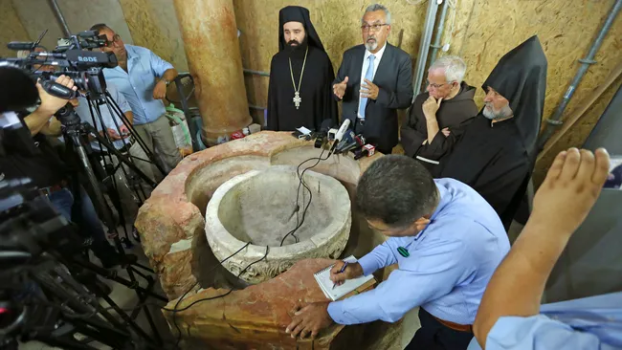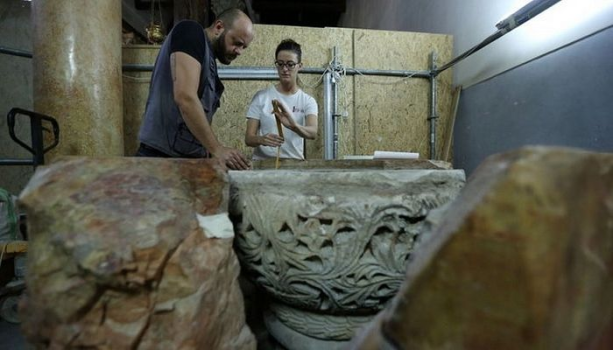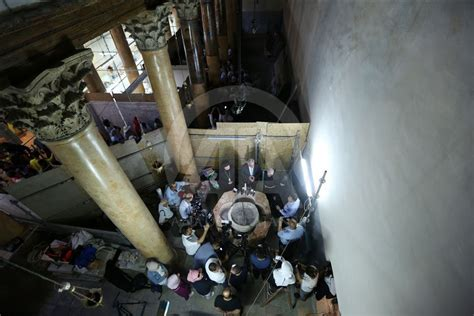This has been discussed ad nauseum in another thread, but I did not want to revive it.
I just ran into this link, while looking for a definition, and thought it curious and interesting enough to share.
(copied in full) (CORRECTION... IT IS CUT OFF DUE TO LENGTH... CHECK THE LINK TO FINISH)
(IN THE LINK YOU CAN SCROLL DOWN TO THE FEW SCENARIOS SECTION)
(tHE DISCUSSION ON IMMERSION AS WELL AS THE MENTION OF THE HOLY SPIRIT KIND OF
GOT MY ATTENTION)

 hermeneutics.stackexchange.com
hermeneutics.stackexchange.com
Biblical Hermeneutics
Asked 1 year ago
Modified 1 year ago
Viewed 767 times
1
Acts 16:33 KJV
Is there a possibility that a different baptism was administered here?
Share
Improve this question
Follow
asked Feb 2, 2023 at 10:32

collen nd vu
vu
23.4k4040 gold badges170170 silver badges337337 bronze badges
Highest score (default) Date modified (newest first) Date created (oldest first)
2
Note the comments of Gill on Acts 16:33 -
Share
Improve this answer
Follow
edited Feb 2, 2023 at 18:17
answered Feb 2, 2023 at 10:57

Dottard
101k44 gold badges4242 silver badges146146 bronze badges
Add a comment
1
This question would not be necessary if the Greek word "baptizo" had been properly translated, rather than transliterated from the Greek. It means to be dipped, submerged, immersed. Every time the Anglicized word "baptism" appears in the English translations, you need to think "immersion".
Strong's Gr. 907 "baptizo", to dip, sink. Thayer's Gr. Lexicon, II. "...an immersion in water, performed as a sign of the removal of sin, and administered to those who, impelled by a desire for salvation, sought admission to the benefits of the Messiah's kingdom;..." Source: Biblehub
Sprinkling was never a thought in their minds.
Share
Improve this answer
Follow
answered Feb 2, 2023 at 11:26

Gina
9,97722 gold badges2020 silver badges3737 bronze badges
1
I just ran into this link, while looking for a definition, and thought it curious and interesting enough to share.
(copied in full) (CORRECTION... IT IS CUT OFF DUE TO LENGTH... CHECK THE LINK TO FINISH)
(IN THE LINK YOU CAN SCROLL DOWN TO THE FEW SCENARIOS SECTION)
(tHE DISCUSSION ON IMMERSION AS WELL AS THE MENTION OF THE HOLY SPIRIT KIND OF
GOT MY ATTENTION)
What kind of baptism was administered in Acts 16:33?
Acts 16:33 KJV And he took them the same hour of the night, and washed their stripes; and was baptized, he and all his, straightway. It is said the jailer together with his family were all bapti...
Biblical Hermeneutics
What kind of baptism was administered in Acts 16:33?
Ask QuestionAsked 1 year ago
Modified 1 year ago
Viewed 767 times
1
Acts 16:33 KJV
It is said the jailer together with his family were all baptized that very midnight.Seeing it was midnight and there was no pool mentioned in the prison complex where Paul was incarcerated how could the whole family be baptized without anyone noticing it if they had to go outAnd he took them the same hour of the night, and washed their stripes; and was baptized, he and all his, straightway.
Is there a possibility that a different baptism was administered here?
Share
Improve this question
Follow
asked Feb 2, 2023 at 10:32

collen nd
 vu
vu23.4k4040 gold badges170170 silver badges337337 bronze badges
No need for a pool in the prison complex as the earthquake had affected the very foundations, Paul & Silas were outside the cells, the jail-keeper had come out and after a bit they went back to his house. A bit of moonlight might have aided their way to the nearest river or pool unaffected by the earthquake, though lanterns could have sufficed. Anyway, why would they not want anyone to notice the baptisms? They weren't doing this in a corner, just as earthquakes don't happen surreptitiously!
– Anne
Feb 2, 2023 at 16:08
4 Answers
Sorted by:Highest score (default) Date modified (newest first) Date created (oldest first)
2
Note the comments of Gill on Acts 16:33 -
I also note that Philippi was coastal city with good water supply so any of these very local bodies of water would have been sufficient for regular baptism, ie, submersion..and was baptized, he and all his, straightway; by immersion, that being the only way in which baptism was administered, or can be, so as to be called a baptism: and which might be administered, either in the pool, which Grotius supposes to have been in the prison; or in the river near the city, where the oratory was, Acts 16:13 and it is no unreasonable thought to suppose, that they might go out of the prison thither, and administer the ordinance, and return to the prison again before morning unobserved by any; and after that, enter into the jailer's house and be refreshed, as in the following verse; and as this instance does not at all help the cause of sprinkling, so neither the baptism of infants; for as the jailer's family were baptized as well as he, so they had the word of the Lord spoken to them as well as he, and believed as well as he, and rejoiced as he did; all which cannot be said of infants; and besides, it must be proved that he had infants in his house, and that these were taken out of their beds in the middle of the night, and baptized by Paul, ere the instance can be thought to be of any service to infant baptism.
Share
Improve this answer
Follow
edited Feb 2, 2023 at 18:17
answered Feb 2, 2023 at 10:57

Dottard
101k44 gold badges4242 silver badges146146 bronze badges
Add a comment
1
This question would not be necessary if the Greek word "baptizo" had been properly translated, rather than transliterated from the Greek. It means to be dipped, submerged, immersed. Every time the Anglicized word "baptism" appears in the English translations, you need to think "immersion".
Strong's Gr. 907 "baptizo", to dip, sink. Thayer's Gr. Lexicon, II. "...an immersion in water, performed as a sign of the removal of sin, and administered to those who, impelled by a desire for salvation, sought admission to the benefits of the Messiah's kingdom;..." Source: Biblehub
Sprinkling was never a thought in their minds.
Share
Improve this answer
Follow
answered Feb 2, 2023 at 11:26

Gina
9,97722 gold badges2020 silver badges3737 bronze badges
Thank you for the insight on the word "baptizo". It seems to be a verb but does not specific an object. If take it literally, we may add water as the object. But what if it meant spiritually? The moment of receiving the Holy Spirit, may feel like a body and mind refreshment after a shower or a bath.
– Vincent Wong
Feb 5, 2023 at 15:40
Water was definitely the article / object used for the immersion, else there would not have been the need to deny it as a simple washing of the flesh. The prophesy of the Holy Spirit being poured forth upon that generation was from Joel 2, & that was not an automatic result of immersion / baptism. See my answer at the previous question here: hermeneutics.stackexchange.com/questions/53850/…. See also my posts at my blog for Testing The Spirits - Parts Va, b, & c. Speaking the words of the Holy Spirit was not a bodily...
– Gina
Feb 6, 2023 at 3:57
...possession, but a knowing. The 1st century AD disciples were given that knowledge directly & miraculously. Today we know His word by studying it. The more we know, the more we have the Holy Spirit through His word. Link to posts begins here: shreddingtheveil.org/2022/07/12/…
– Gina
Feb 6, 2023 at 4:00
I like your insight and I would invite you to answer my question posted hermeneutics.stackexchange.com/questions/81262/…
– Vincent Wong
Feb 6, 2023 at 14:54
1





